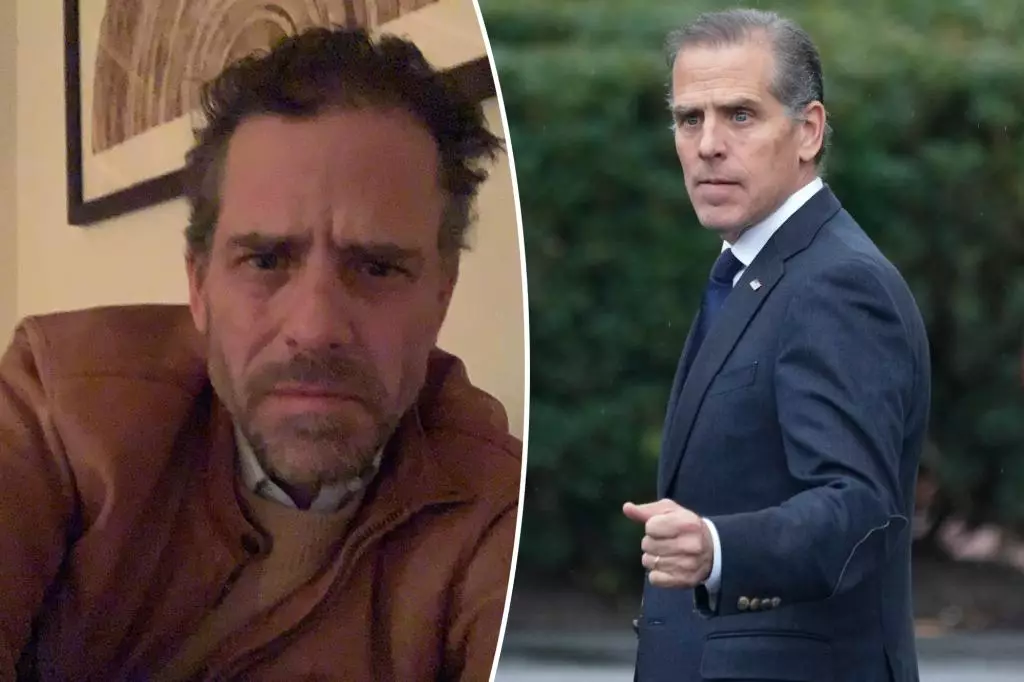Hunter Biden, the son of President Joe Biden, continues to navigate the complex intertwining of celebrity and controversy as he finds himself increasingly welcome at Hollywood gatherings. Despite a looming sentence in two criminal cases, recent reports indicate that the 54-year-old is shedding some of the severe stigma tied to his legal troubles in favor of becoming a sought-after guest among the wealthy elite of Tinseltown. Insiders suggest that Hunter has been vocal about his ongoing legal woes during these social gatherings, lamenting about his escalating legal fees and the notorious scandal surrounding his dealings in Ukraine.
The curious case of Hunter Biden raises significant questions about privilege and its role in the legal system. While many individuals facing criminal charges find themselves isolated and stigmatized, Hunter’s ability to mingle with Hollywood’s upper crust suggests a certain level of acceptance afforded to him due to his familial connection to the presidency.
Recent revelations have put a spotlight on Hunter’s staggering legal expenses, which reportedly stand at around $18 million. This figure has raised eyebrows, particularly given that in earlier estimates, his legal bills were cited as over $10 million accrued within five years. The financial burden stems from various legal battles, including federal investigations, a divorce, and custody disputes, prompting discussions about the strain of legal fees on individuals embroiled in high-stakes situations.
It’s noteworthy to consider how Hunter’s legal challenges are mirrored by many Americans who face grave financial repercussions as a result of legal troubles. This disparity highlights a troubling dichotomy in society: wealth and social status can significantly alter the experience of facing the law.
Hunter Biden’s situation is further complicated by the political landscape shaped by his father’s presidency. Despite the administration’s insistence that it will not intervene politically to aid Hunter, the elder Biden’s presidency looms over his son’s fate. This dynamic creates an uncomfortable narrative where personal and familial struggles intersect with national politics.
Interestingly, Hunter’s potential benefits from a future presidential pardon have sparked discussions, particularly after Donald Trump’s recent comments indicating he wouldn’t dismiss the idea should he be re-elected. Trump described Hunter as “a bad boy,” referencing the controversies that have plagued him, particularly surrounding his infamous “laptop from hell.” This remark serves to illustrate the stark partisan divide that shapes public perception of Hunter and his actions.
Despite these hurdles, Hunter Biden has sought to reinvent himself through the lens of artistry, displaying talents that have occasionally been overshadowed by his familial and legal issues. His venture into the art world raises questions about the authenticity of his artistic contributions and whether they are merely a means to an end in light of mounting legal costs. The complex layering of being both an artist and a high-profile individual offers a glance at the juxtaposition of creative expression and personal turmoil.
For many, Hunter Biden embodies the quintessential American narrative of privilege, struggle, and resilience. Judged under the public eye, he remains a polarizing character—a son caught in a web of accumulating debts, both financial and reputational, yet finding some solace and social standing among the elite of Hollywood.
As Hunter prepares for upcoming sentencing dates, the world watches with bated breath. The reception he receives in Hollywood juxtaposed with the serious nature of his legal predicaments serves as a testament to the complexities of contemporary society. Public perception remains split; some sympathize with him as a troubled figure seeking redemption, while others vehemently criticize the perceived leniency he receives.
Hunter Biden’s ongoing journey is a study in contrasts—one that highlights the intersections of privilege, scandal, and artistry. As he walks the thin line between the world of legal strife and the allure of Hollywood, he embodies a multifaceted narrative of modern America that many can view through their individual lenses of belief, judgment, and empathy. Ultimately, his story prompts a deep examination of how societal structures both confine and liberate individuals in dire circumstances.

